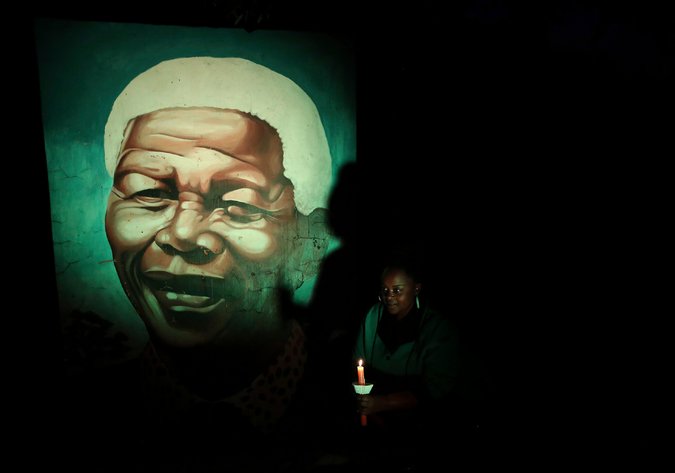It was a death long foretold that drew mourners from his own nation and across the globe. But on Friday, one year after Nelson Mandela died, it almost seemed as if those he inspired were questing to rediscover his message of probity and reconciliation in a society with new troubles.

After a long illness, Mr. Mandela, South Africa’s first black president, died at age 95 on Dec. 5, 2013, and President Jacob G. Zuma declared, Our nation has lost its greatest son. Mr. Mandela remains the country’s moral touchstone.
The superlatives returned on Friday as South Africa planned a day of anniversary events that included prayers and speeches as well as a star-studded cricket match and the blaring of the monotone vuvuzela horns that distinguish the nation’s soccer crowds.
In the year since his death, South Africa has sometimes seemed to cling to his memory as an antidote to the apparently intractable challenges of a land whose leaders stand accused of corruption and failure to provide jobs and basic services for millions of impoverished people.
Although Nelson Mandela is no longer physically with us, F. W. de Klerk, South Africa’s last white leader, said in a statement, his legacy remains to guide us as we continue our journey into the third decade of our new society. Mr. de Klerk shared the 1993 Nobel Prize with Mr. Mandela.
At a lengthy public ceremony of speeches and commemorations in Pretoria, the South African capital, that was streamed by news channels, George Bizos, Mr. Mandela’s lawyer and a close friend, mused on the essence of the former president’s message. Mr. Mandela, he said, believed in the essential worth of every individual person, irrespective of their skin color or faith.
In elections in May, the fifth of the post-apartheid era, Mr. Mandela’s African National Congress, which has governed South Africa since the first fully democratic elections in 1994, triumphed again with roughly 60 percent of the vote. But its rivals gained ground, with the opposition Democratic Alliance strengthening its position and the radical, left-wing Economic Freedom Fighters making remarkable gains, bringing a raucous new element into the discourse in Parliament.
Such has been the turbulence that the police have twice been called to Parliament to deal with disruptions and protests by the Economic Freedom Fighters.
When Mr. Mandela died, some in South Africa’s economically powerful white minority said they feared that the racial divisions that still haunted the country would deepen. Others argued, however, that the country’s gap between rich and poor — among the world’s widest — presented an equal or greater peril.
A recent survey by the nonprofit South African Reconciliation Barometer found that, The majority of South Africans do want a unified country, and they have experienced meaningful social change since 1994.
But many ordinary citizens, it said, believe that material inequality is the biggest challenge to reconciliation in South Africa.
Cyril Ramaphosa, the deputy president, led the official commemoration in the absence of Mr. Zuma, who was booed during a memorial for Mr. Mandela in Soweto last year and who was winding up a visit to China on Friday.





